Text

Adding the inanimate suffix to the verb gàm (“to bonk, to bash”) creates the form gankò, which means “club” (as in a weapon used to attack)—yet another word relevant to the dog warriors of Sovála.
6 notes
·
View notes
Text
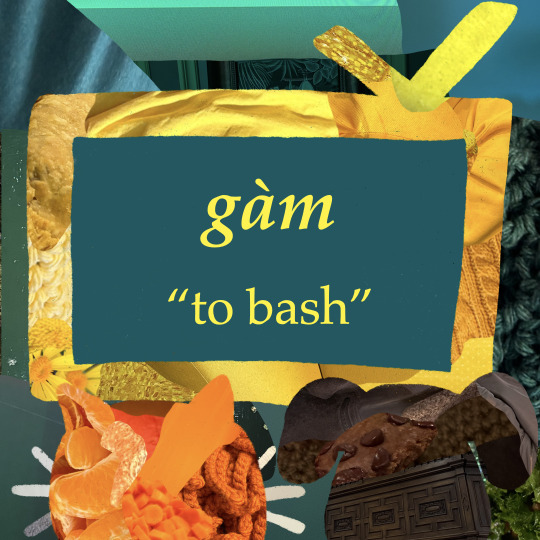
Today’s entry is gàm, meaning “to bonk” or “to bash.” I personally prefer the definition “to bonk,” which makes me giggle because it’s such a random-sounding silly English word (bashing sounds much more dangerous and terrifying than bonking!). This is another important verb for the dog soldiers and warriors of Sovála.
1 note
·
View note
Text
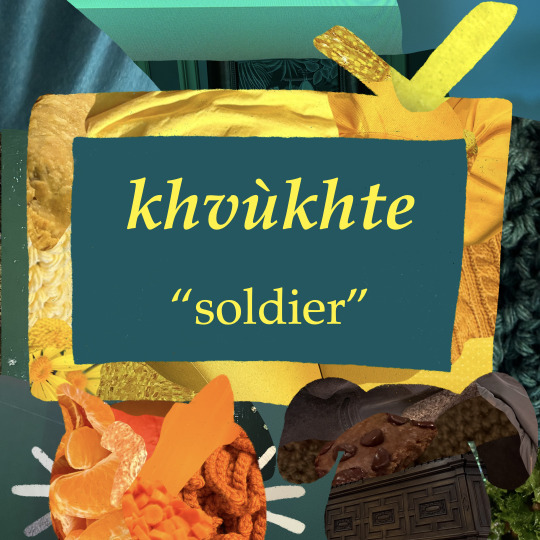
Yesterday’s entry was khvùghù (“to guard, defend, protect”). Adding the agentive suffix to that verb creates khvùkhte, which means “soldier, guard.” Our dog soldiers of Sovála now have a word for their position!
11 notes
·
View notes
Text
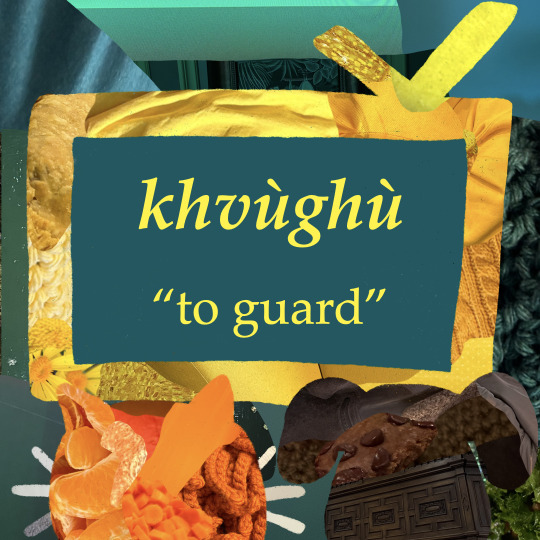
Built on the verb meaning “to growl,” khvùghù means “to guard, defend, protect.” To create this form, we also made a new verbal derivation for Haughòf—a prefix indicating habituality based on the locative copula (which itself comes from the verb meaning “to stand”).
2 notes
·
View notes
Text
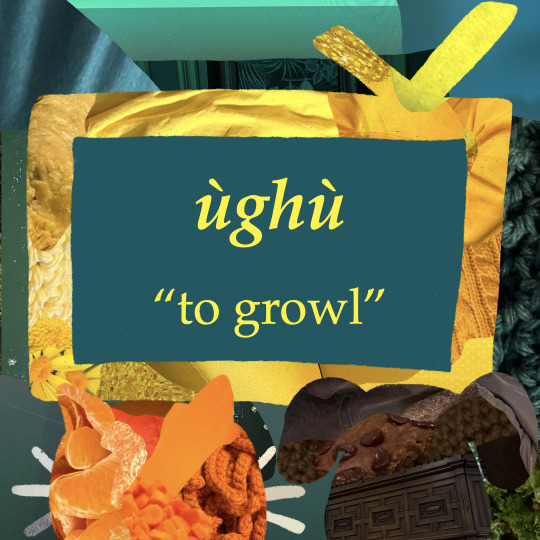
Another verb in Haughòf is ùghù, which means “to growl.” Growling is a doggish reaction to perceived dangers, so the many dog soldiers and warriors of Sovála (the game David created) will likely spend quite some time growling!
1 note
·
View note
Text

Another word built on the verb base kòàl is kòàltaum, which is a compound meaning “to sacrifice.” The compound consists of the previously introduced verb base meaning “to block” and the noun taum, which means “blood.”
4 notes
·
View notes
Text
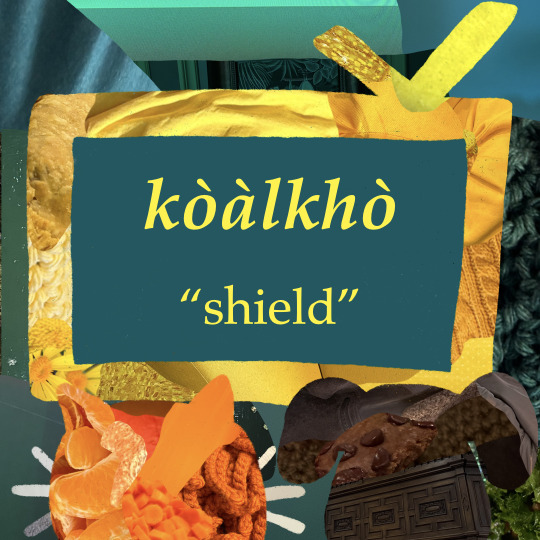
Building on yesterday’s word, kòàlkhò features the verb base kòàl (“to block”) and the derivational suffix that creates an associated inanimate noun. Together, the full word means “shield.”
7 notes
·
View notes
Text

Today’s Lexember entry is the verb kòàl, meaning “to block.” It is a handy word to have for the dog soldiers and warriors of the Sovála game, and it is a base for upcoming Haughòf entries!
11 notes
·
View notes
Text
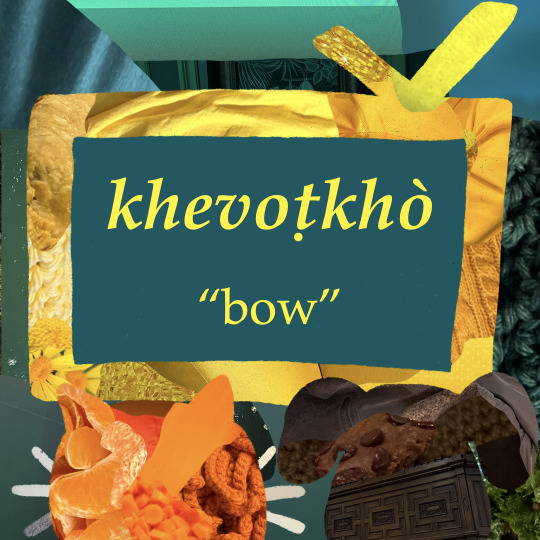
Adding the derivational suffix -khò (seen in an earlier entry) turns khevoṭ into khevoṭkhò, which means “bow” (as in a bow and arrow). As a reminder, that suffix turns a verb into an inanimate noun associated with the verb base.
10 notes
·
View notes
Text

The compound khevoṭ literally breaks down to “bend-throw,” and it is used to mean “to shoot,” specifically referring to shooting an arrow.
8 notes
·
View notes
Text

The verb khae means “to bend” in Haughòf, which will play a role in our upcoming entries!
7 notes
·
View notes
Text
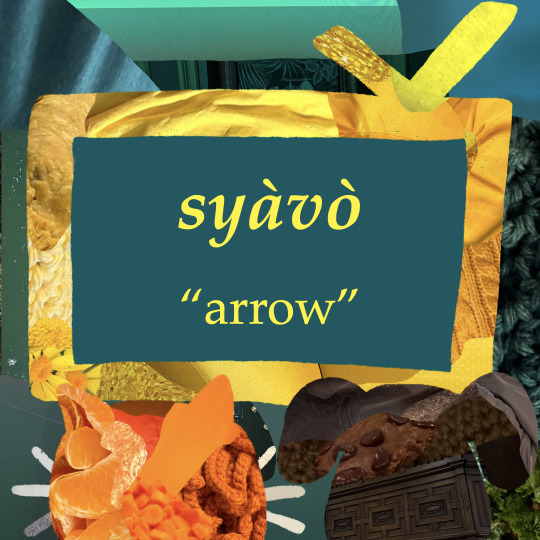
The Haughòf word for “arrow” is syàvò, which is the augmentative form of syà (“splinter”)—an arrow is like a large splinter.
19 notes
·
View notes
Text
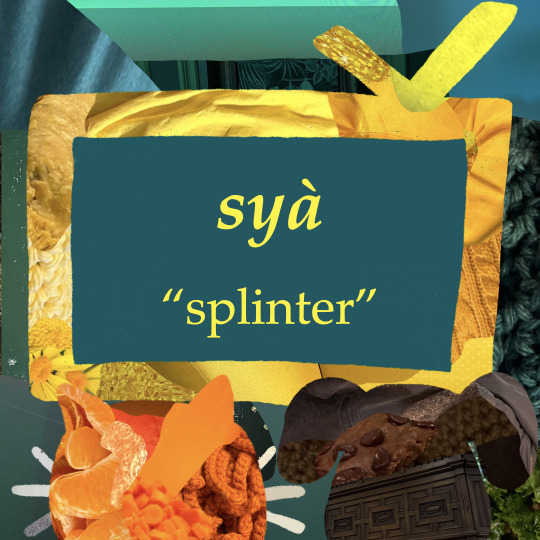
Today’s Lexember entry is the noun syà meaning “splinter, sliver.” Splinters are quite the nuisance to our dog speakers, as they often get stuck in their little foot paws, and syà sounds a bit like the noise of frustration they may exclaim when they get those splintery little nuisances!
8 notes
·
View notes
Text
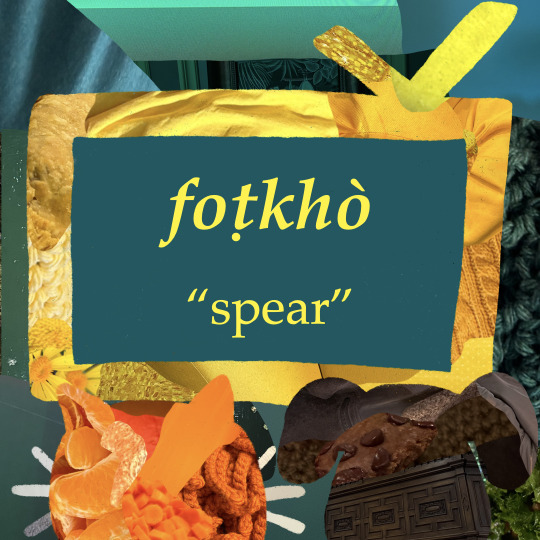
The word for a spear in Haughòf is foṭkhò, which is based on the root “throw” (which was yesterday’s entry). The suffix ultimately comes from the word meaning “stick” and creates an inanimate noun associated with the verb base. In this case, a spear is associated with the act of throwing.
10 notes
·
View notes
Text

And now we are officially focusing on Haughòf for the rest of this Lexember! As with the Sarkezhe entries, these are focused on expanding vocabulary for our dog speakers, specifically focusing on words we need for Sovála, the game David has created. For today’s entry, the verb foṭ means “to throw,” which is a handy verb to have!
12 notes
·
View notes
Text
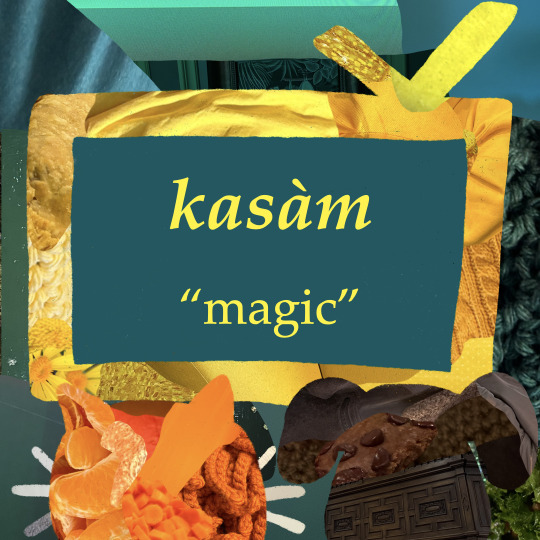
We have reached the midway point in Lexember, and we are taking today to do a special crossover before switching languages to finish off the month with Haughòf entries (the language of the dogs). The word for “magic” in Sarkezhe is kathõ, which played the part as a base of an earlier Lexember entry, kathonyo (“magic spell”). The dogs borrowed this word from the cats, and it became kasàm in Haughòf. Now we have magic for both the cats and dogs!
19 notes
·
View notes
Text
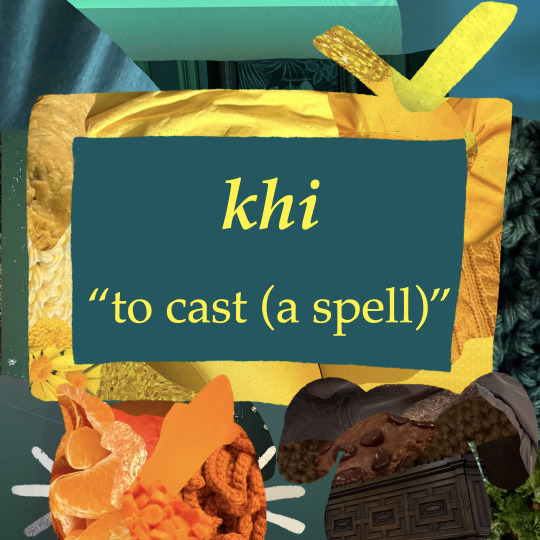
The verb khi has a basic meaning of “to swipe,” but it is also the verb used for casting a spell. As the cats use their magic, they make a swiping motion (which may not be necessary for achieving the spell’s effect, but it sure does look impressive!).
1 note
·
View note